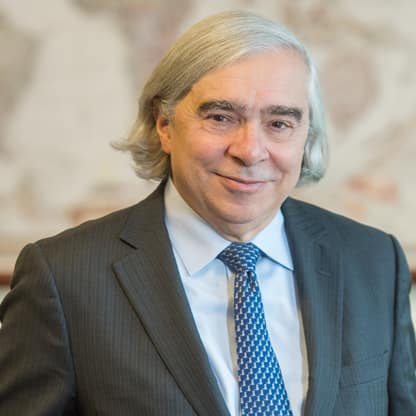- Back to all Speakers
- Dr. Ernest Moniz
Sessions With Dr. Ernest Moniz
Tuesday, 7 March
-
10:00am - 10:30am (CST) / 07/mar/2023 04:00 pm - 07/mar/2023 04:30 pm
Accelerating Global Collaboration to Address Climate Change
A conversation on China-U.S. tensions and its impact on climate cooperation. As China and the United States both compete for global leadership on several fronts including new energy, what will climate cooperation look like between the two largest economies and biggest emitters in the world?
-
12:30pm - 01:10pm (CST) / 07/mar/2023 06:30 pm - 07/mar/2023 07:10 pm
Wednesday, 8 March
-
04:05pm - 04:45pm (CST) / 08/mar/2023 10:05 pm - 08/mar/2023 10:45 pm
The Geopolitics of Energy Security and Transition
Geopolitics/Policy/RegulatoryMuch has been speculated about the geopolitical benefits of a net-zero world, fueled through renewable energies and revamped supply chains to support them. Energy, in theory, becomes locally sourced, not a tool of geopolitical power. Yet the world is only starting to grapple with the geopolitical impacts of making this transition. War in Ukraine has taught us that we need new policies, greater resilience and new tool kits. As the energy transition unfolds, what does energy justice mean across nations? How can we ensure adequate hydrocarbon supplies if they face massive retrenchment in coming decades? How do rich and poor governments incentivize technology investment guided by markets and not ideology? What are the new risks and opportunities in mineral supply chains and cyber vulnerability?

